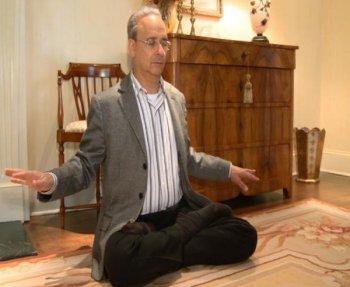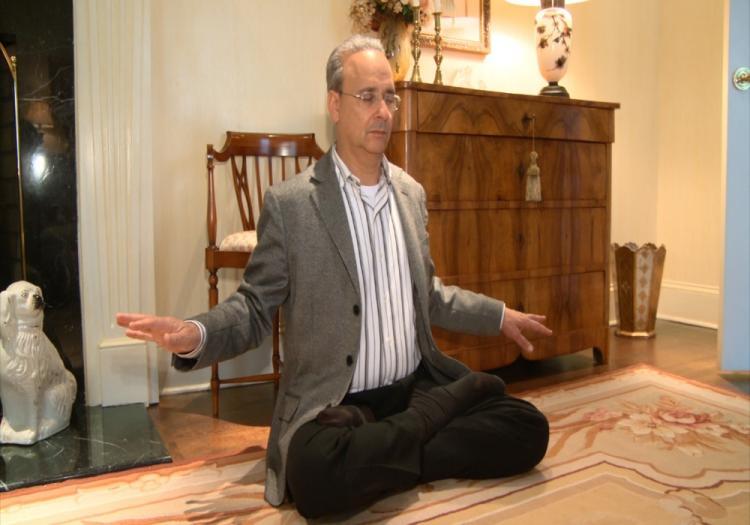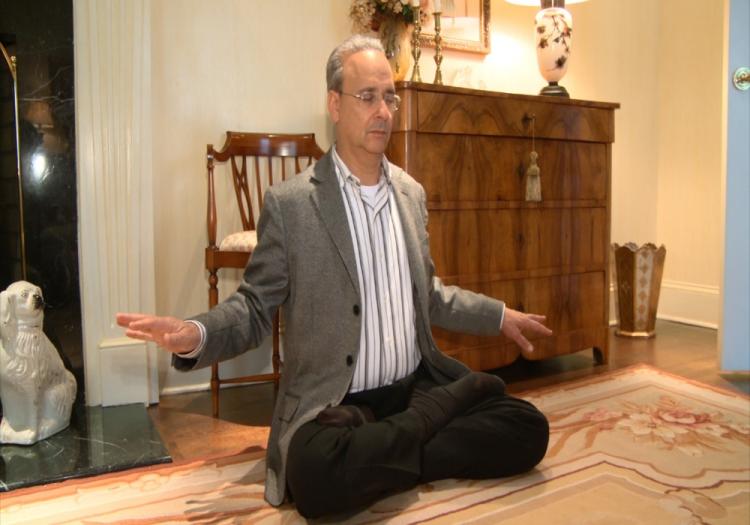Businessman’s Long Quest Leads to Calm and Balance
A New Jersey businessman had longed for a deeper understanding of life, and an old friend pointed him to what he sought.

Alan Adler is practicing the sitting meditation. The Epoch Times

Stephen Gregory
Publisher
|Updated:





